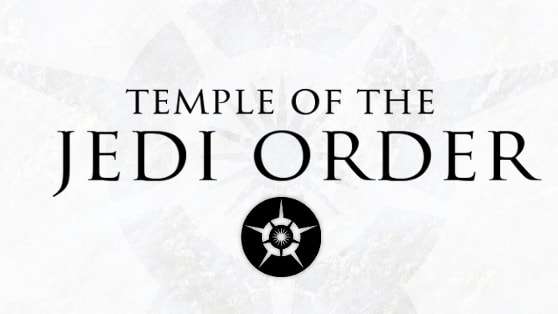The Volokh Conspiracy
Mostly law professors | Sometimes contrarian | Often libertarian | Always independent
Their lack of faith is disturbing - British Charity Commission rules that the Jedi are not a religion

According to census data, the Jedi are the seventh largest religious group in Britain, and have in the past risen as high as fourth place. Yet the Charity Commission for England and Wales recently ruled that the Temple of the Jedi Order does not qualify as a religion for purposes of registering as an official charity:
The commission rejected an application to grant charitable status to The Temple of the Jedi Order.
It said Jediism did not "promote moral or ethical improvement" for charity law purposes in England and Wales….
In its ruling the Charity Commission said Jediism "lacked the necessary spiritual or non-secular element" it was looking for in a religion.
It said there was insufficient evidence that "moral improvement" was central to the beliefs and practices of Jediism and did not have the "cogency, cohesion, or seriousness" to truly be a belief system.
The commission said to be classed as a religion it must also have a positive beneficial impact on society in general and raised concerns that Jediism may, in part, have an "inward focus" on its members.
The full text of the ruling is available here.
I'm far from being an expert on British charity law. So I don't have a strong opinion on whether the Commission made the correct decision or not. But some of its reasoning is troubling. To many people, it may seem obvious that the Jedi are not a "real" religion. But the reasons given by the Commission could easily apply to more mainstream faiths.
For example, if the Jedis' belief in the Force is not a sufficient "spiritual or non-secular element," what of the various religions that believe in inchoate spiritual forces or supernatural beings whose nature and purposes are nebulous? As the Commission notes, British law does not require belief in one or more gods as a qualification for a religion. So the Jedi Temple's lack of commitment to a god is not sufficient reason to conclude that they lack the necessary spirituality.
The Commission also opined that the Jedi creed lacks the "cogency, cohesion, or seriousness" to qualify as a religion. Obviously, Critics often same the same thing about many religions. In this passage, the Commission, explains why the Jedi faith lacks the requisite cogency and cohesion:
The Commission considers that there is insufficient evidence that Jediism and the Jedi Doctrine as promoted by [the Temple of the Jedi Order] is a sufficiently structured, organised or integrated system of belief to constitute a religion. There is insufficient evidence of an objective understanding of Jediism as opposed to a self-defining system which may be pursued outside the confines of a religion and in a secular manner. It comprises a loose framework of ideas with some common ground which individuals may interpret as they see fit….
There is scope for individuals, consistent with Jediism and the Jedi Doctrine promoted by TOTJO, to pursue a spiritual path, a philosophy or way of life out side of the scope of a religion, as that term is defined in charity law. Any cogency and cohesion that is present is eroded by the individual's ability to develop themselves within a loose framework and follow an individual experiential philosophy or way of life as a secular belief system.
Lots of religions lack a single "objective understanding" of their tenets, and many also can easily be described as "a loose framework of ideas with some common ground which individuals may interpret as they see fit." Both Islam and Judaism, for example, are major religions where there is no single central authority that dictates an "objective understanding" of their tenets that all believers subscribe to. There are also many religions where individual believers are supposed to interpret religious doctrine for themselves, rather than defer to a church or some other institution. That is a major tenet of some forms of Protestantism.
Finally, the Commission claims that the Jedi are not sufficiently focused on "moral improvement" and that their doctrine is too vague to provide "ethical edification" to the public. Once again, it is pretty obvious that the same criticisms can be leveled at various more mainstream religions.
The last part of the ruling indicates that organizations promoting "nonreligious philosophical beliefs" must usually prove that they are promoting societal "welfare or improvement" in order to qualify as charities, and that the Jedi Temple fails this test. Perhaps so. But that becomes relevant only if their beliefs are indeed "nonreligious."
In sum, it could well be that the Commission made the right decision here. But some of the reasoning is troubling, in so far as it might well apply to many more mainstream religions. If the Commission does not similarly deny charitable status to the latter and for the same reasons, that suggests possible bias against unconventional faiths. That might be disturbing even if you are a Sith Lord who is otherwise thrilled to see the Jedi suffer a defeat.


Show Comments (0)